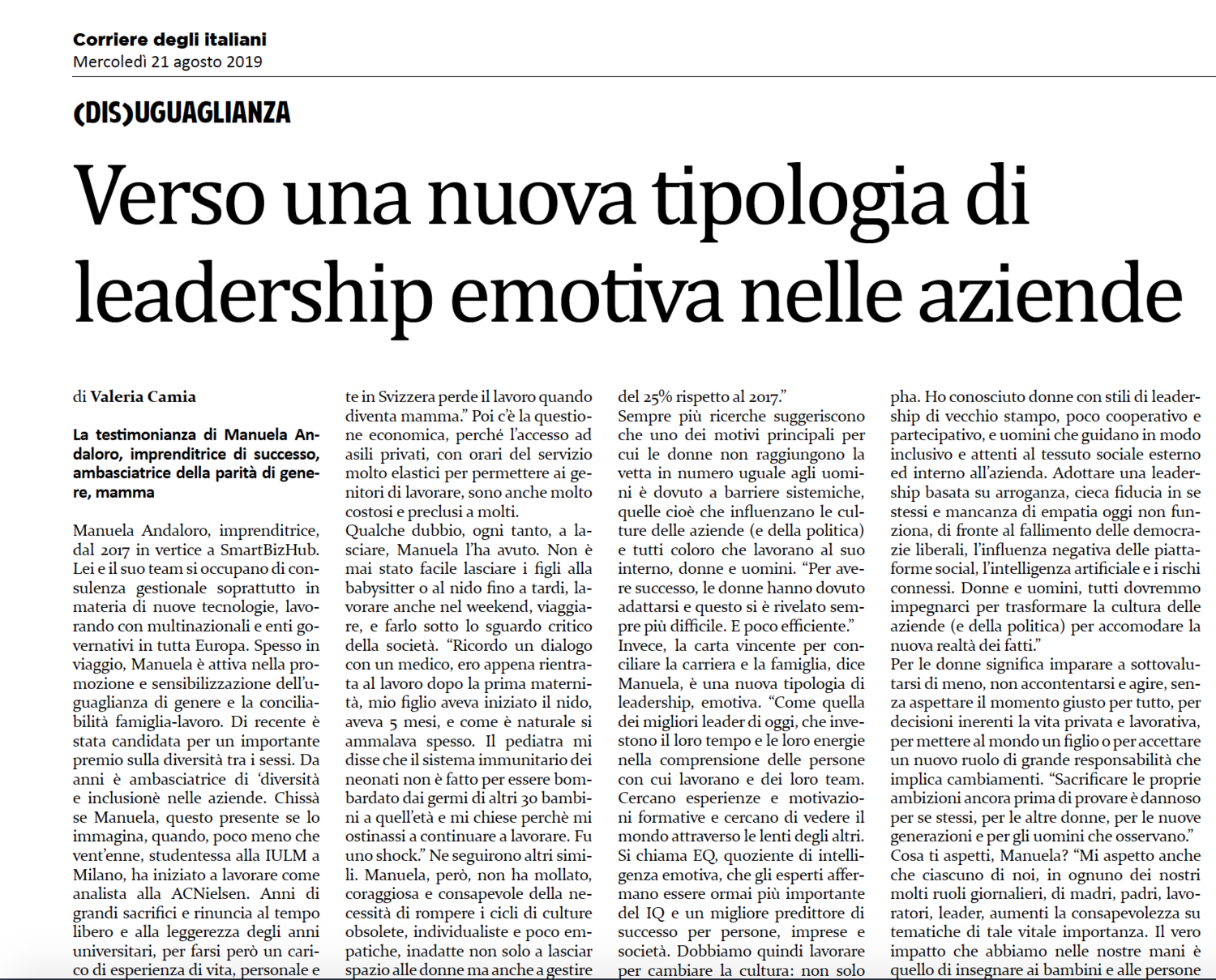On June 8th, 2021, the Horasis community gathered for the annual Global Meeting to navigate latest developments and discuss the post-COVID future. Under the theme “Fostering Shared Humanity”, over 1000 speakers and delegates debated how to be entrepreneurial and at the same time proactive in advancing sustainable development in the interest of the global public good.
What are the seedpods of shared solutions to solve the existential challenges facing business, governments and humanity at large? How to nurture the deep transformations our world needs? And how to ignite discourses on openness, fair globalization and equality?
I was delighted to be able to contribute to an incredible panel, chaired by Lisa Sennhauser-Kelly, with fellow-panelists such as Ayumi Moore Aoki, Anita Motwani, Nina Angelovska and Luisa Delgado, to discuss a theme on the global agenda: women on boards.
We fail consistently to meet targets for women on boards, in circumstances that damage organisational reputations and the opportunities offered by embracing fresh styles of leadership.
Having seen little progress with voluntary efforts, several countries have enacted legislation that calls for a minimum percentage of female directors. But is it working? Are we choosing the right candidates?
Board quality is dependent on board diversity – and for this, we need a combination of skills and experience. Diverse boards are less prone to 'groupthink' and more likely to embrace new approaches to meet threats and opportunities.
Women are a rapidly growing economic force in many leading and developing economies. In many countries women influence or control nearly three- quarters of household spending: without greater and more diverse female representation on their boards, companies are losing out on not only an important segment of talent, but on a critical marketplace perspective.
So what will it take to get more women on boards?
I am pleased to share the full session in the video below as well as my contribution to the topic.
1. What is your story?
I’m an advisor on social trends, economic impact and culture and expert in marketing, communications and public affairs, I’ve had a career in finance, and I’m passionate about diversity and responsible leadership. Over the past 20 years I have worked for both the private and public sector in Milan, London and Zurich.
I grew up in Milan, my husband is German so we have a trilingual household, and we currently live in Zurich with our 3 young children.
I’ve had a non-linear career by choice, which these days have become the new normal, and today I help organisations to build trust as social capital, as I believe that the social, economic, and environmental challenges of our time, truly require new approaches to leadership and responsibility.
My daily mantra at work is to foster and develop skills such as empathy, emotional quotient, ability to listen to what is not said, and to understand and analise society and its trends. I greatly admire companies that have a positive impact on society, that deliver responsibly and walk the talk when it comes to social development goals, diversity, gender equality, responsible and trustworthy leadership.
My advice for younger women who are starting today, for women who are struggling with work, from lack of recognition to impostor syndrome, is to choose very carefully the people you surround yourself with, there always needs to be a balance of give and take, but most of all, of mutual respect. So, find and use your voice, respectfully, but firmly. With your boss, your peers, your circles, your stakeholders, there are lines that should not be crossed and balances to keep at all times, this will actually earn you respect.
Also, one skill that takes time to learn and master is the ability to say no when something simply does not work for you.
Never stop learning, learn to zoom in and out, from the bigger picture down to the detail, and back, make plan A, B, C, and be ready to adjust over and over again. But most importantly, be curious, be open and enjoy the work you do.
2. What creates high performing boards? What are the leadership qualities required and what has gender to do with this?
Hundreds of studies on gender and leadership have found that at the individual level, men and women are close on most aspects of leadership potential, with no significant differences found for intelligence or general learning ability, as well as general leadership.
However, there is a female advantage when it comes to transformational leadership, a style that is linked to higher levels of team engagement, morale, and productivity, as well as effectively rewarding individuals for their performance. Also, men tend to lead more autocratically and are more likely to be laissez-faire leaders— a counterproductive leadership style. Women tend to be better communicators, have higher emotional intelligence, and lower levels of aggression, a pattern that is altogether associated with superior leadership capability.
So why do we need gender-balanced boards? Beyond fairness, increased gender diversity brings a competitive advantage to modern companies, which face extraordinary competition in an economy that puts an unprecedented premium on knowledge. Women comprise more than half of the pool of human capital. Companies that fail to fully leverage and draw from more than half of the pool risk losing an edge.
Also, companies better connect with their stakeholders – be it customers, employees, owners, and the communities in which they operate – when they have greater diversity, including on their boards.
There is very clear research from McKinsey, Credit Suisse and Catalyst that documents that companies with gender-diverse boards experience greater returns on equity, increased returns on sales and higher returns on invested capital.
So a high-performing board is one that generates and implements fresh and most inclusive ideas. When a gender imbalance exists, boards can easily fall into ‘group think’ and fail to see and account for perspectives that might enhance company performance. Great ideas can arise only when a diverse pool of thought is active and present at the table.
3. If women are drivers of higher performance, due to their skills and abilities, why aren't there more women on boards, what is holding us back? Are we holding ourself back?
I think that when it comes to women and leadership we should be admitting that often the world of work works against us. That, coupled with the lack of inspiring and diverse role models, and the fact that leadership today is much less meritocratic than we think, all that does not help women to move up through the ranks and into senior positions. We have too many systemic barriers and many unrealistic expectations.
The current barriers affect companies’ cultures and everyone working within it, women and men. To succeed, women have had to adapt, and this has proven increasingly difficult.
New role models to me are crucial to break the cycles of outdated cultures, inspiring women and men to a new identity of leadership, one that leverages skills such as collaboration, empathy, empowerment, and trust, helping younger generations of women and men to rise to become new role models themselves, leaders driven by strong soft skills, empathy and trust.
New successful forms of leadership do not take only one form, but all have a common denominator: emotional quotient and competence over confidence.
In general, women or men, I believe we should be very aware of how, often unconsciously, we fall for leaders who are confident, narcissistic and charismatic, we should instead promote people into leadership because of their competence, humility and integrity, incidentally – but proven- this will lead to a higher proportion of female leaders too. Falling for "charismatic" leaders can be very dangerous.
Also, to get better at choosing their leaders, companies need to change how leaders are groomed and promoted. These changes would not only allow more women to advance, they would help men who don’t fit our assumptions about what a leader “should” be. The result would be a rising tide of leadership competence that really would be good for business and help us moving towards more sustainable economic models too. But that’s a topic for another panel
4. What are your thoughts about quotas, pros and cons and which way do you lean on this point?
I believe quotas are often the only way ahead, unfortunately. I used to be against gender quotas as I felt government intervention on this topic felt like we, as a firm, had failed as we had to comply with strict government policies. However corporate politics, bias, stereotypes, and dynamics in many countries, in many sectors, and in many firms are simply too difficult to overcome. Also, often quotas do not guarantee that we select the best female candidate for the role. And this can backfire against women, how many times have we heard “she only got the role because she is a woman”?
In 2003, Norway pioneered the use of gender quotas, requiring public companies to fill at least 40 percent of their boards with women. Otherwise, they would risk losing their board certification. Inspired by Norway, other countries, including Iceland, Spain, France, Italy, Belgium and Germany, soon followed suit by enacting their own targets.
By contrast, Britain avoided quotas when it launched an initiative back in 2011 to increase the number of women directors on boards. The effort not only boosted the representation of women directors without the use of quotas, but also dramatically decreased the number of all-male boards from 152 to none in the FTSE 100, and to just 15 in the FTSE 250.
So while the reasons behind the gender imbalance may be complicated, the solution does not have to be. Companies looking to diversify their boards should consider adopting the ‘Every Other One’ approach as somebody recently. Fill every other vacant board seat with a woman.
If this happened, company boards would reach actual gender parity within just a few years.
Companies also can – and should – expand the criteria for board directors to achieve parity. Corporate leaders should cast a broader net to include senior female executives with strong business track records.
Boards are increasingly recognising that gender diversity is imperative to successful business, but more action is needed. While some boards already have a substantial representation of women, and a number have been adding women, they must make it an ongoing priority to increase the number of women on their boards.
M.
(manuela.andaloro@smartbizhub.com)

















